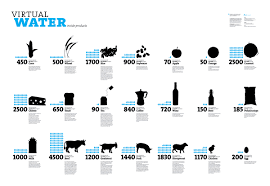
Chemical engineer & ecological economist studying thermodynamics, scale theory, and ethnic politics @iimb_official. Views personal.
How to get URL link on X (Twitter) App

https://twitter.com/maheshperi/status/16290439458450186262007 was when IIMs implemented OBC reservations (amidst significant pushback from a faculty body that was almost entirely "upper" caste). As public institutions were thrown open to Bahujan students, the entrenched elites pulled the carpet under their feet.

https://twitter.com/cblatts/status/1592511038695821312Can you even imagine my Indian students being able to do this in Madurai, let alone North America? What would have been the experience of a Black Canadian American student? These are questions that development economics must ask but does not.


 Virtual water entered the contemporary water discourse when the late Professor Tony Allan (inspired by the work of the Israeli economist Gideon Fishelson) formulated the “embedded water” construct to explain water conflicts (or lack thereof) in the Middle East.
Virtual water entered the contemporary water discourse when the late Professor Tony Allan (inspired by the work of the Israeli economist Gideon Fishelson) formulated the “embedded water” construct to explain water conflicts (or lack thereof) in the Middle East. 
